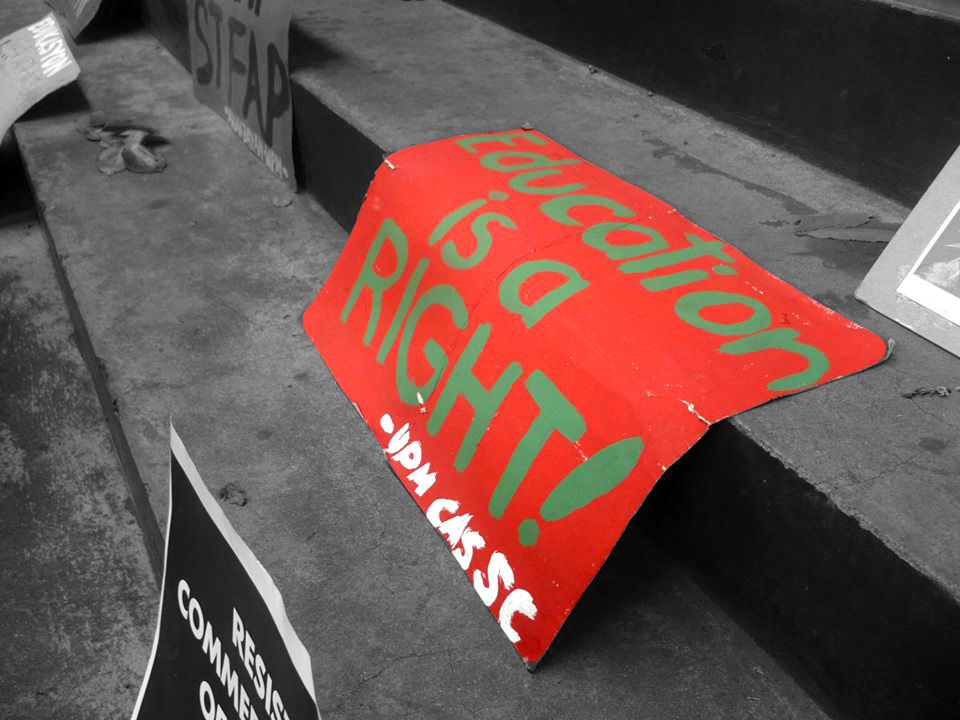'Vote of confidence'
- ATF News Online

- Apr 26, 2019
- 3 min read
by Jefferson Losito
History can attest to the vital role of student formations in times of crises. In the current political climate where basic social services are denied and killings become more rampant, students are called upon to heed these trying times.
Being the highest student formation in the University of the Philippines Diliman (UPD), the UPD University Student Council (USC) must respond to such challenges.
In recent years, however, student involvement during elections of the UPD USC – an institution that prides itself as the representation of the entire student body in the university – has seen a continuing decline. The 2019 UPD USC Elections recorded the lowest voter turnout for the past decade at 40.85%.
With this weakening participation, questions on the stability and effectiveness of the council have been raised by concerned students. Pointing fingers on who is at fault for such circumstances become more rampant.
Students falling prey to false hopes and unwarranted failures has caused skepticism in the strength of the whole USC as the university’s student body representative. Many have come to question exactly who and what the USC represents.
Campaign smearing and room-to-room rhetorical promises failing to translate into concrete actions have casted doubts on the genuineness of elected student leaders. Lack of rules on abstention in the university’s electoral code has weakened student faith on the USC as well.
Still, it is tactless to assume that declining student involvement in elections means that they do not see its effectiveness anymore. One cannot speak for the entire 59.15% of the student population who did not vote. There could be a myriad of reasons for not being able to do so.
Nevertheless, let us not forget that the historical significance of student councils remains beyond catchy one-liners and gimmicks. It has shown the councils’ capabilities in mobilizing the student body even during a dark period in Philippine history.
The abolition of all student formations in 1972 was a result of democracy’s suppression. It served as one of many manifestations of a corrupt and tyrannical rule under former president Ferdinand Marcos’ Martial Law.
A month after the declaration of Martial Law, Marcos issued Presidential Decree (PD) No. 58 which provided an avenue for student body representation in the UP Board of Regents (BOR) - the highest decision-making body in the entire UP system. However, the abolition of student formations made it impossible to appoint a student regent.
Through the national alliance of student councils in UP, Katipunan ng mga Sangguniang Mag-aaral sa UP (KASAMA sa UP), student councils were successful in fighting for the reinstatement of a student regent in the BOR.
Youth leaders fought for their right to organize and asserted the importance of student councils in shaping the future of the nation. It was only in 1978 when the first student council was restored in UP Los Baños.
These prove that the largest stakeholders of the university are the students, thus the need for direct involvement in policy formulation within. Student formations, such as student councils, do not only represent the entire student body, but could also be a means to safeguard the rights of students. They ensure that the needs of the constituency are heard and recognized.
One thing is certain amid doubts on the student council: every system and institution has its weakness. Still, beyond the flaws of student formations lies an even greater challenge - the presence of a looming tyranny that threatens to suppress democracy.
This should compel the entire student body to forge broader unities, collectively assert their rights, and elect council officials that will be capable of embodying and lobbying these rights.
While democracy itself can only strive to be perfect, the power still lies within the constituents to demand accountability and call for improvement among elected officials and electoral processes involved, for university and national elections alike.
If we are to stand a chance against this tyranny, we must organize our ranks and let our voices be heard. Electing our representatives is only the start of democracy. The end remains in the people’s collective action.






Comments